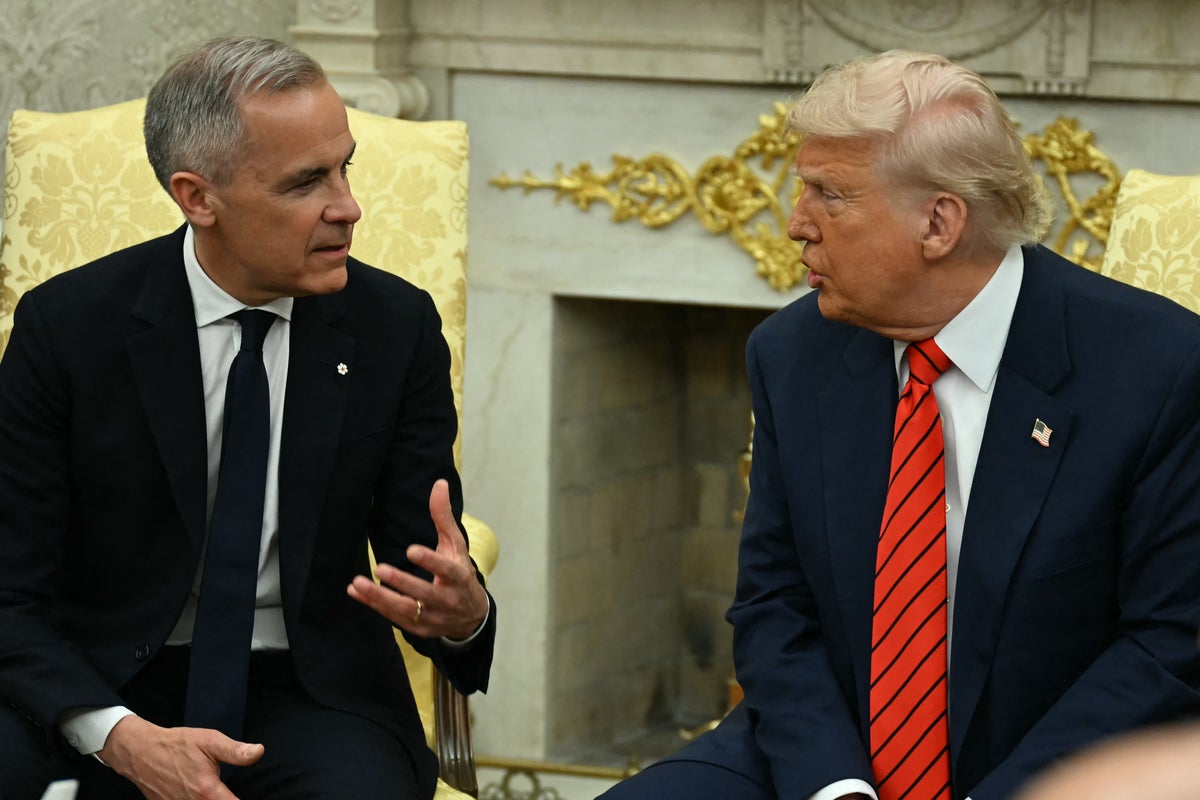President Donald Trump is continuing to suggest that Canada could divest itself of its’ own sovereignty and join the United States as the 51st American state over the continued objections of Canada’s new prime minister, Mark Carney.
Carney, whose Liberal Party cruised to a victory over the rival Conservatives in last month’s parliamentary elections in part thanks to widespread disgust at Trump’s suggestion that Canada could be annexed as well as the trade war the U.S. president started against the longtime American ally, visited the Oval Office on Tuesday for his first-ever meeting with his U.S. counterpart.
Speaking in the Oval Office alongside Trump, he called the American leader “transformational” and praised his “relentless focus on the American worker” and efforts at “securing your borders … ending the scourge of fentanyl and other opioids and and securing the world.”

But when Trump was pressed on whether he still would like Canada to become part of the U.S., he refused to drop the line.
“I do feel it’s much better for Canada, but we’re not going to be discussing that unless somebody wants to discuss it,” he said.
Trump, who has been divorced twice and has a long history of failing to remain faithful to his spouses, added that Canada becoming part of the United States “would really be a wonderful marriage.”
Carney, responding to Trump invoking his own background as a real estate developer while discussing why he would like to erase the longstanding U.S.-Canada border, told him that “there are some places that are not for sale” and said Canada remains one of those places.
“Having met with the owners of Canada over the course of the campaign over the last several months, it’s not for sale. It won’t be for sale ever, but the opportunity is in the partnership and what we can build together,” he said.
Carney added that Trump had played a role in having “revitalized NATO” and pushing his country to “playing our full weight” in the 32-member bloc, at which point the American leader acknowledged that Ottawa had been “stepping up the military participation” by spending enough on defense as a percentage of Gross Domestic Product and called the increased spending “a very important thing.”
But Trump refused to concede Carney’s point on his country not being up for sale, adding: “But never say never.”
Carney, sitting silently as the American president spoke, mouthed the word “never” to the television cameras trained on him.
The sit-down between the Canadian head of government and the American head of state comes after a whirlwind first 100 days of Trump’s second administration, during which he has inflamed once-cordial relations between the longtime allies by imposing successive waves of tariffs on Canadian goods and making a show of disrespect for Carney’s predecessor, Justin Trudeau.
Trump took to calling the former Liberal Party leader “governor” as if he were already the head of an American state shortly after he won the 2024 presidential election and began proposing that Canada become the 51 state as a way of avoiding the tariffs he has touted as a solution for everything from trade imbalances to fentanyl trafficking across the largely unguarded frontier between the two countries.
Trudeau, in an effort to be conciliatory, rushed to the president’s Florida home to meet with him shortly after the election in hopes of quelling the discontent, but to no avail. Instead, he and his party grew more and more unpopular as Trump’s attacks on him increased.
But Trudeau, who had spent nearly a decade in office, upended the table by announcing his resignation shortly before Trump was inaugurated. Carney was chosen as his successor pending last month’s parliamentary elections, and the prospect of new leadership — combined with a rally-around-the-flag effect in response to Trump’s annexation talk and trade wars — caused the Liberal Party to reverse months of dismal polling and retain control of government in Ottawa.
More follows…



